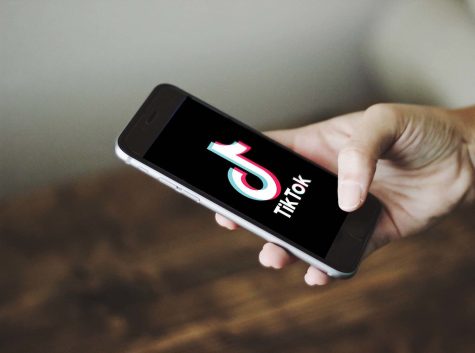SAT goes digital in 2024

“Large lecture college classes” by kevin dooley
Students will trade pencil and paper for laptops as SAT shifts to a digital format in 2024.
The Standard Aptitude Test, or SAT, highlights the epitome of junior year and has been used by colleges and universities around the nation during the college application process since its debut in 1926. The SAT has changed in many ways over the years, from the highest score one can achieve to the number of questions on the exam.
Recently, College Board has announced a change that will completely transform the way the SAT will be taken in the future: the SAT is going digital.
There are a few important things to know about these changes: first, the specifics of how the exam will take place online have not been released, as College Board is in their trial-and-error phase. Keep in mind, the SAT will remain the same until the beginning of 2024, meaning that current juniors still take the SAT on paper.
One exciting change is that the test will only be two hours instead of three; this is mainly because the reading passages will be shorter. For the math section, students will be able to use a calculator for both sections instead of only one. Students will also receive their scores back in a few days instead of weeks. Finally, students can take the test on their own laptop or tablet, while still taking the test at their local testing site.
However, these changes also bring about a string of concerns. First is the question of test integrity. If students use their own devices, there is obviously a concern about switching tabs and using the vast Internet sources to cheat on the test. Additionally, Internet connection is often unreliable and can interfere with the test procedures and more.
Regardless of the pros and cons, it will be interesting to see how the digital SAT impacts students and college applications. Students and faculty have various inputs on the news.
Freshmen are only at the beginning of their high school career, but by the time they are juniors and start preparing for the SAT, they will be preparing for a digital exam. They will only ever know of the SAT in its digital form, not the paper version that has always been used.
“After school being online for over a year, having the SAT online would be more comforting as I’m so used to navigating everything on my laptop,’’ freshman Layla Khoury said.
Even though the new version of SAT will be something to hopefully look forward to, many people are confused as to why the test is even changing in the first place.
“I get that it’s the first year trying, but it could end up being worse than on paper, and my grade has to be the guinea pigs to take it online for the first time,” sophomore Hanna Talulkar said.
Juniors are in their most stressful year of high school and are studying hard to best prepare themselves for the SAT. Current juniors will be some of the last students to take the test on paper before the changes take place.
“I feel like it was something that was bound to happen eventually; I guess I just never thought it would happen so soon,” junior Jenny Nisim said. “I am interested in how the test being online might affect students.” “My younger sister will be taking the online test in the future, and we will be able to see the difference between the test being on a computer versus in person.”
Seniors have already sent in their SAT scores and are anxiously waiting for college decisions to come out. Although they have already taken the SAT, they do have some comments about this new change.
“I think students will rely on cheating and prepare for the test less if it is online,” senior Natalie Landman said. “It’s definitely easier on paper to annotate for the reading portion and work out the math problems.”
Additionally, the way students prepare for the test will likely have to change as well.
McFatter English teacher David Wood, spouse of English teacher Paula Wood, has been teaching for nearly 30 years and is also an SAT tutor.
“I am wondering about the logistics of testing so many kids at once. Will schools have the necessary technology? What will happen to students in poorer communities?” Wood said.
Mr. Wood is not the only one with a string of questions regarding the impending SAT transformation. There are also other school staff members that have their own comments concerning the logistics of the exam.
Guidance counselor Tracey Greenbaum serves as the school’s SAT coordinator.
“For Saturday SAT days, I think it’s awesome! We won’t have to be here until 1 p.m. as we typically do,’’ Greenbaum said. “Although I do not have much information on the change, I am concerned about the wifi crashing, as I will have hundreds of kids on the same wifi at the same time.’’
In November of 2021, College Board ran a trial run of the digital SAT where 80 percent of students reported feeling less stressed out. So there is hope in this new era of online standardized testing.








